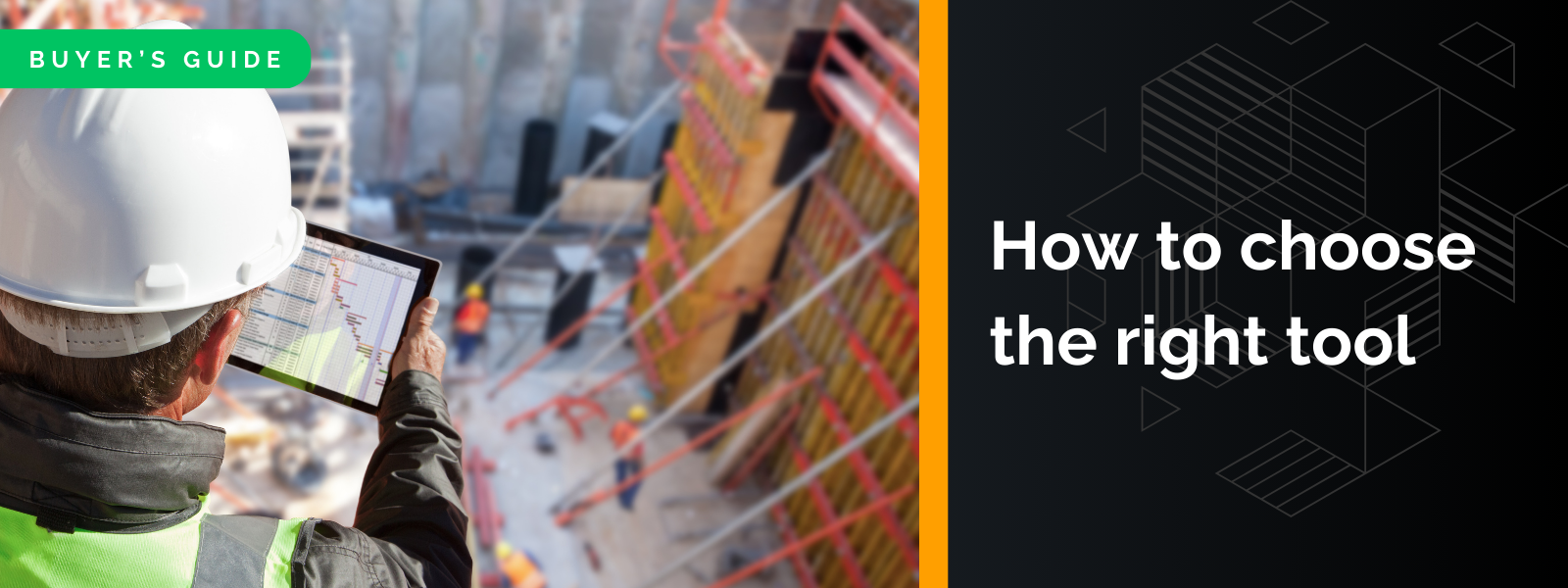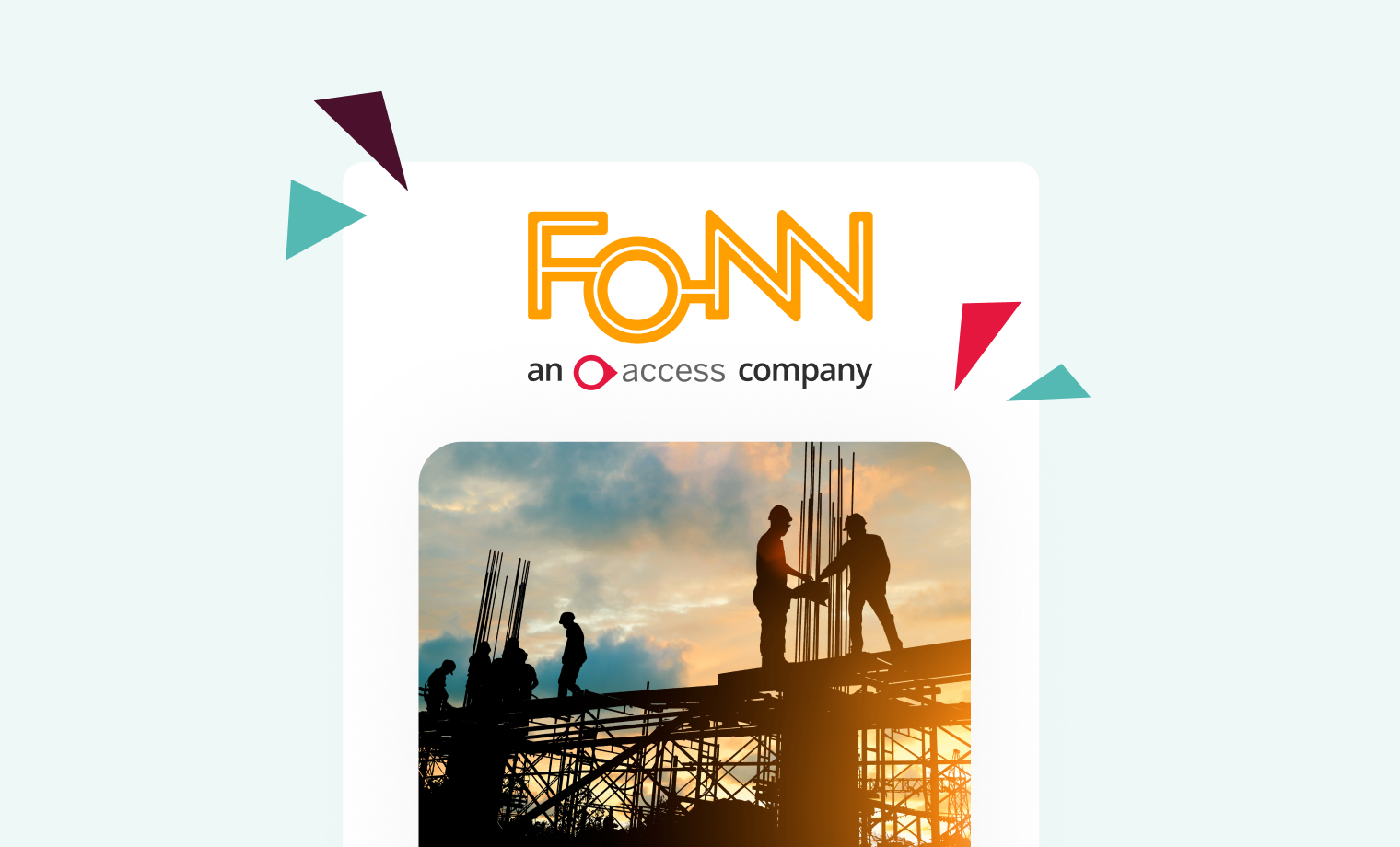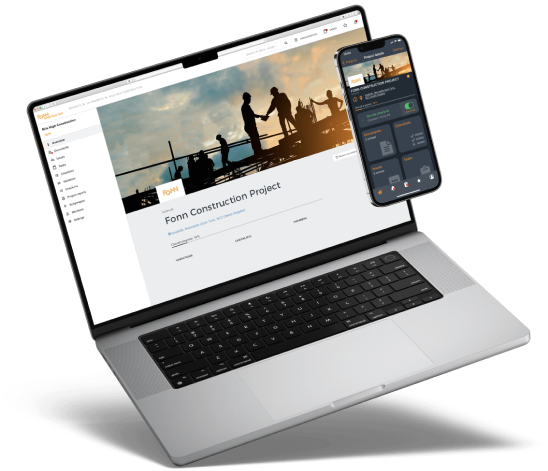Construction is well and truly part of the digital revolution.
Many construction firms have embraced technology as part of managing their day to day projects and portfolios. But choosing the right construction management software for your company's needs is a different matter. It could be the difference between better planning and delivering projects faster, and more efficiently, or having an expensive piece of software sitting redundant on the shelf.
Get it right though, and the rewards of digitalisation will be extremely fruitful. According to the McKinsey Global Institute, digital innovation and transformation can provide significant improvements in productivity (15%) and reduce costs (6%) for the construction industry. This is a game-changer for businesses in our sector, who, with the right software, can gain a distinct competitive advantage. This includes the ability to maximise project outcomes around profitability, process optimisation and customer satisfaction.
What is construction project management software?
The right software enables you and your team to view, edit and manage any project you’re currently working on. The right software should be easy to use and provide a complete view of the project, including its lifecycle, people, processes and resources. It essentially brings together the different elements of job sites and information in the office into one place to improve completion and delivery of the project. These features and functions include:
- Task management
- Document management
- Resource management
- Risk management
- Team communication
- Scope of works
Depending upon which solution you choose, it will also help you manage the scoping and planning of projects, coordinate budgeting and scheduling, outline goals, milestones and requirements as well as identify the physical and human resources used on job sites. Furthermore, it also provides a link between any job site and your office, meaning information can be captured at all times and used freely between locations. This helps with better and faster decision making.
How to choose the best platform for construction
There are a variety of factors to consider. What works for one company might not be best for yours, which means careful consideration of the factors as they relate to you and your people. We’ve put together the top eight things to consider when evaluating your needs:
-
User experience: People are probably the most important part of the process. If they don’t embrace technology because it’s too hard to use, then any software purchase will be wasted. Consider how your teams work together, what they need to be successful and if the technology and how they will use it is the right fit for them.
-
Cost vs. benefit: Make sure you consider all costs, and ensure the outcomes you expect far outweigh these. Beyond the hard cost of purchasing new software, there are also many hidden costs organisations fail to consider, such as the time taken to implement the software and train people.
-
Mobile app: The chances are a majority of your users will be on a job site at any given time, which means an easy-to-use mobile app is essential if your project management software is to become integrated into the day-to-day lives of your team. Additionally, capturing data from the job site will be hugely important so that your teams in the office can make better decisions.
-
Customisation: While many software packages will run ‘off the shelf’ and be a good fit immediately, your business will likely change over time. That means what you need from a software solution could change too, so it pays to consider the level of customisation the software offers and how easily it can be configured to meet any changing requirements you could have in the future.
-
Collaboration: One of the biggest advantages of project management software is its ability to enable people and teams to work together more easily. Information must be able to flow freely, and importantly, be stored correctly and intuitively for all teams to access quickly and easily.
-
Demo or free trial: Investing in new software is a big decision both in terms of cost and dedicating resources. Many vendors will offer a free trial or demo before you make a full purchase, to ensure you feel comfortable with your decision before you fully commit.
-
Integration: The ability to integrate your project management software with other software applications, such as design programs or accounting systems could become important as your business becomes grows. Not only will it enable information to flow freely, but it creates even more efficiencies and less reliance on manual processes or ‘work-arounds’, which only serve to make things more complicated.
-
Training and support: Change takes time as your people learn new systems and technology. Access to proper support and training while you manage any new software implementation will be critical to its long-term success. It will also ensure your teams remain up to date with the latest changes and best practices.
Which is the easiest-to-use software?
When thinking about how easy the software is to use, the biggest consideration for your company is likely to be how people on job sites will adopt your chosen new software tool. As your central users, they want it to be easy to understand and use, which increases your ability to gather information and data from the field, which can then be used across your organisation. This is critical to how well you’re able to generate better business outcomes such as increased productivity and faster decision making.
For even more advice on how you can choose the best software for your construction projects, download our free buyer's guide.






